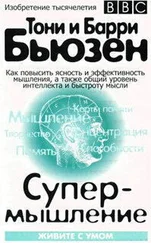Root Number 2
claim clam
Meaning: to declare; call; carry out (from the Latin ‘ clamare ’)
‘With this root you will be able to claimadditional verbal territory, and to further increase the probability that your increasing verbal skills and performances will be met with acclaim!’
Example words
De claimverb. To make a formal speech.
‘I wish to declaimon the subject of Holanthropy.’
Pro claimverb. To make known to the public.
‘Our new knowledge about the brain and its ability to learn is so important that we must all take every opportunity available to us to proclaimit globally.’
Ex claimverb. To cry out suddenly, as in surprise.
‘When she first saw all her friends gathered for her surprise party, it made her exclaimin a manner that brought a smile to everyone’s face.’
Root Number 3
corp corpor
Meaning: body (from the Latin ‘ corpus ’)
‘The incorporationof this root into your vocabulary will hearten the other roots and will create among them an esprit de corps!’
Example words
Corpsnoun. A group of people organized into the single body for a common service.
‘Many young people join the Peace Corpsin order to help other people around the world, and to widen their knowledge and experience of the planet.’
In corporate verb. To form into a body of persons by legal enactment.
‘They decided to incorporatethemselves into a company, in order to maximize the rewards they could reap from their clever idea.’
Corporeal adjective. Having a material body.
‘It is important to both distinguish and integrate matters corporeal, intellectual and spiritual.’
Root Number 4
dic dict
Meaning: to say or declare (from the Latin ‘ dictare ’)
‘This root will act as an indicatorto where it itself appears!’
Example words
Dictionary noun. A reference book of what words ‘say’.
‘A dictionaryis a very useful tool to have when you are developing your Verbal Intelligence.’
Pre diction noun. A declaration of what will happen in the future.
‘It is my confident predictionthat more and more people will become interested in developing their Multiple Intelligences.’
Diction noun. The correct choice or use of words.
‘He spoke clearly and beautifully – his dictionwas close to perfect.’
Root Number 5
fac fact
Meaning: to make (from the Latin ‘ facere ’, ‘ factus ’, to create or construct)
‘When you have finished this exercise you will have a greater facilitywith any word containing these two roots, and from it you will derive great satisfaction!’
Example words
Satis faction noun. The state in which everything is made right.
‘I can’t get no satisfaction!’
Facile adjective. Easily achieved.
‘It was a facilevictory, in which he check-mated his opponent with no apparent effort.’
Factotum noun. One who can do many things
‘The irreplaceable employee was a factotum; she did everything.’
Root Number 6
fic fect
Meaning: to make (from the Latin ‘fictus’ , to form or fashion)
‘With this root you will be the beneficiary of that which will make you far more proficientwith your vocabulary, and will help you on your road to verbal perfection!’
Example words
Magni ficent adjective. Made grandly.
‘The Taj Mahal is a magnificentexample of architecture at its best.’
Dei fication noun. Making a god out of something or worshipping something as a god.
‘The deificationof the sun and moon were a major part of most cultures’ spiritual development.’
Ef ficacious adjective. Effective; producing the desired effect.
‘It was a risky experiment, with happily efficaciousresults.’
Root Number 7
gnosi cognosc
Meaning: to know (from the Latin ‘ noscere ’ and ‘ cognoscere ’)
‘This root will help you recognizean entirely new range of words, none of which, to you, will be able to remain completely incognito!’
Example words
Cognisant adjective. Being aware; knowing.
‘When you have finished reading The Power of Verbal Intelligence you will be cognisantof a whole new universe of words and meaning.’
Pro gnosis noun. A forecast; foretelling the course of events.
‘With its new understanding of its own brain and potential, the prognosisfor the future of the human race is looking increasingly bright.’
Cognoscente noun. A connoisseur; a person who is ‘in the know’.
‘The gathering of top chefs represented one of the greatest gatherings of cognoscentethe food world had ever known.’
Root Number 8
intellect intellig
Meaning: the power to know and think (from the Latin ‘ inter ’, between, and ‘ legere ’, to choose)
‘This clever root will help you increase your intelligibilitywhen communicating, and will have others impressed by your towering intellect!’
Example words
Intellectual noun. One with knowledge who knows how to reason and understand objectively.
‘Because of her vast learning, she was considered one of the university’s top intellectualbrains.
Intelligible adjective. Can be easily understood.
‘Despite the complexity of the subject, her clear explanation made it completely intelligibleto her audience.’
Intelligencia noun. The intellectual, artistic, musical and thinking class of people in society.
‘Plato thought that it was from the intelligenciathat the rulers of the state or nation should be chosen.’
Root Number 9
liber
Meaning: free (from the Latin ‘ liber ’, ‘ libertas ’) ‘This root will open many new words to you and will help liberateyour mind!’
Example words
Liberalize verb. To make more free.
‘Poets, painters and philosophers have, throughout history, attempted to liberalizeminds from ignorance.’
Liberalism noun. The belief that one should be respectful and accepting of behaviour or opinions different from one’s own; open to new ideas.
‘Democracy and liberalismare often seen to go hand-in-hand.’
Libertarianism noun. An extremely laissez fairepolitical philosophy advocating only minimal state intervention in the lives of citizens. ‘ Libertarianismis at the other end of the political spectrum from totalitarianism.’
Читать дальше












